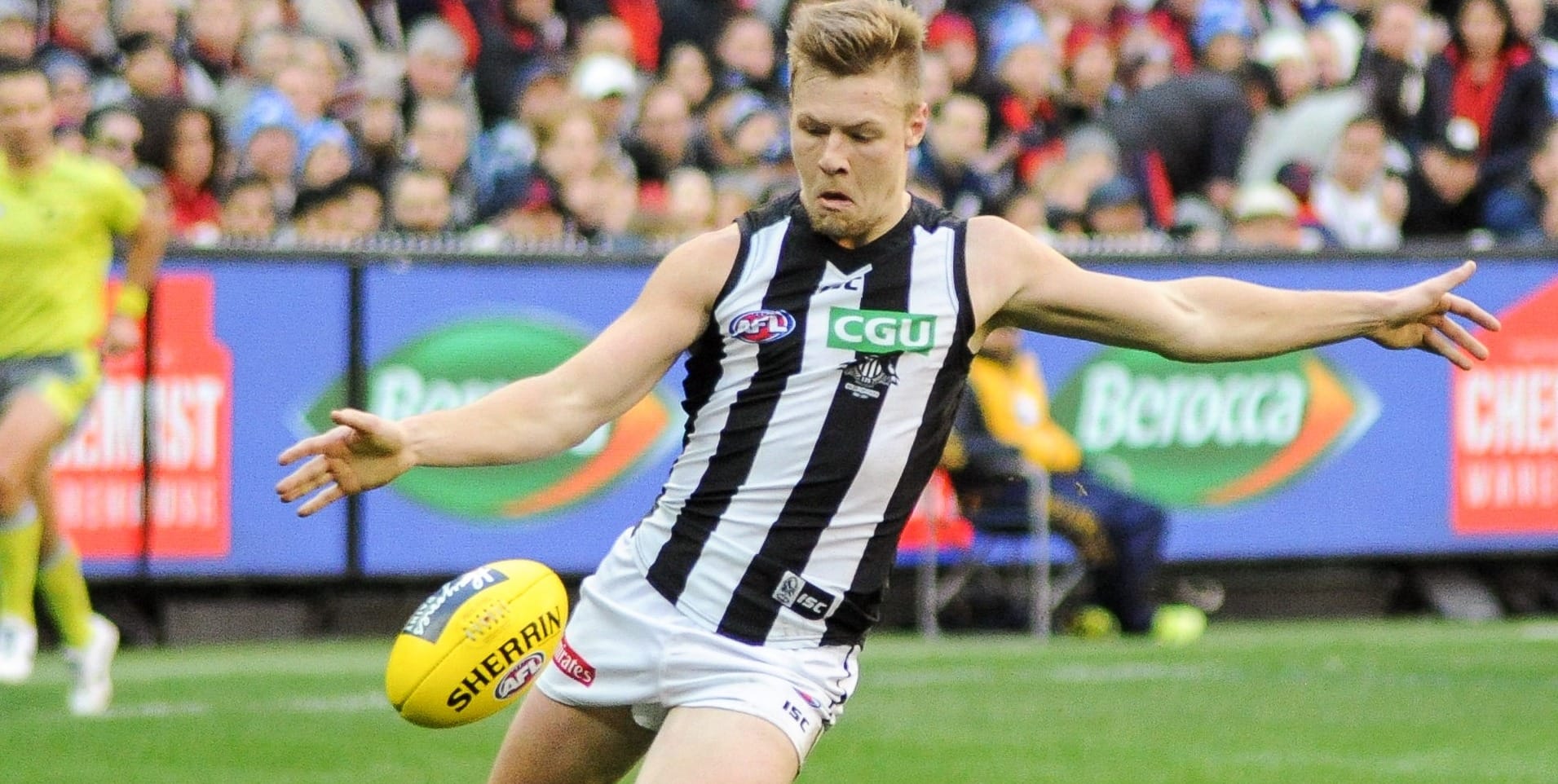
Jordan De Goey and the Collingwood Football Club are two of the most interesting problems in Australian sport at present. The talented De Goey seems incapable of tempering his off-field exploits to fit with the collective culture demanded by a professional and socially-responsible sporting organisation.
But it may not be all his fault. Collingwood and the AFL, at times, seem stuck in the 1980s and 1990s when it comes to attitudes on women and racism.
Times have changed – but has Collingwood?
In 2020, the club was accused of racism by former player Heretier Lumumba. The allegations were substantiated by the independent Do Better report, and the fallout resulted in the resignation of club president and media personality Eddie McGuire.
Héritier Lumumba slams ‘painful’ response by Collingwood Football Club to damning report that exposes systemic racism and a toxic culture at the club. #racism #CollingwoodFC #HeritierLumumba pic.twitter.com/MkXgy5quvT— NITV (@NITV) February 2, 2021
For his part, Lumumba remains at loggerheads with the club and former coach Nathan Buckley, who he alleges made homophobic comments and was party to a display of pornographic images during a team meeting.
Although Lumumba’s allegations are historic, and Buckley has moved from coaching into the media, they may be indicative of the club’s current crisis.
Does Collingwood, and indeed the AFL, have a problem with women, or is it a case of “boys just being boys”?
Days after the posting of De Goey’s Bali romp, junior players Jack Ginnivan and Isaac Quaynor went online rating women. A quick apology followed, and the video was hurriedly deleted, but damage was done to the Magpies’ brand.
A repentant Quaynor declared:
“We've since realised it isn't acceptable, and it doesn't align with the values that both of us hold.”
Given their TikTok-ery and De Goey’s Bali romp, what are theirs and the club’s “values”?
No action was taken against Ginnivan and Quaynor, though the club suggested “further education on the appropriate use of social media with respect to the content they create”.
Jack Ginnivan and Isaac Quaynor release video apologising for their TikTok pic.twitter.com/JGcgEACMLs— 7AFL (@7AFL) June 21, 2022
De Goey, however, was fined $25,000, which was suspended until the end of the season.
This wasn’t De Goey’s first indiscretion. He’s faced sexual abuse allegations in the past, and was stood down by the club after being charged with sexual assault stemming from an incident in a New York City nightclub in November.
In January, he accepted a plea bargain in a Manhattan, NYC, court. He was found guilty of second-degree harassment, and ordered to undergo anger management counselling and alcohol treatment.
With De Goey becoming a free agent next season, there are questions as to whether this and his latest breach have damaged his value in the player labour market. But the more important question is whether De Goey is suited to contemporary sporting culture.
“Perhaps it’s time for a woman to be the AFL’s next CEO, rather than a used treasurer.”
Present-day players aren’t evaluated solely on their on-field contributions, but what they bring to their club and the AFL brands.
De Goey, Quaynor and Ginnivan have certainly damaged the Collingwood brand. Their actions are reminders of the misogynistic 1980s and 1990s, when Carlton’s then-president John Elliott paid off women who brought allegations of rape against players.
This culture persists in sport more broadly, evident in Tim Paine’s resignation as the Australian cricket captain, and the AFL administration hasn’t been spared. In 2017, two senior AFL administrators were dismissed for “inappropriate relationships” with junior female staff.
Nonetheless, football and Collingwood have publicly embraced women as fans and participants with the formation of the AFLW. Collingwood also supports a netball affiliate, the Magpies, which plays in the national competition.
A tokenistic stance?
The AFL and its clubs promote family values, yet the actions of players and the “wet lettuce” response of administrators to the posting of offensive and misogynistic material suggests this embrace may be more tokenistic than substantive.
Questions remain about the standard of education on respect for women, and the appropriate uses of social media.
With greater women’s participation in football, perhaps it’s time for more of them in senior positions within clubs and the AFL’s administration.
Perhaps it’s time for a woman to be the AFL’s next CEO, rather than a used treasurer.
But this would require unseating the patriarchy that’s controlled the game. Perhaps the patriarchy muted the response of the 11 senior women who were approached by the Herald Sun’s Peter Rolfe to comment on the De Goey case.
It was an opportunity for them to take a stand on respect for women in football, and across sport generally. Instead, there was a deafening silence.
Respect for women is a far more important issue than loyalty to a club. Their refusal to comment merely reinforced football’s patriarchy with its “boys will be boys” culture and “wet lettuce” penalties.





